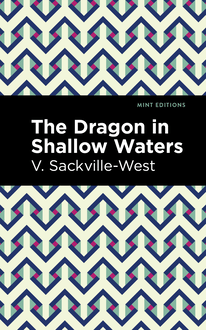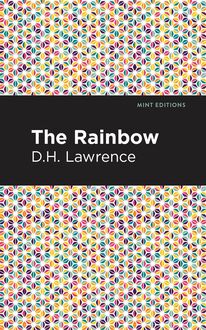-
 Univers
Univers
-
 Ebooks
Ebooks
-
 Livres audio
Livres audio
-
 Presse
Presse
-
 Podcasts
Podcasts
-
 BD
BD
-
 Documents
Documents
-
- Cours
- Révisions
- Ressources pédagogiques
- Sciences de l’éducation
- Manuels scolaires
- Langues
- Travaux de classe
- Annales de BEP
- Etudes supérieures
- Maternelle et primaire
- Fiches de lecture
- Orientation scolaire
- Méthodologie
- Corrigés de devoir
- Annales d’examens et concours
- Annales du bac
- Annales du brevet
- Rapports de stage
La lecture à portée de main

Vous pourrez modifier la taille du texte de cet ouvrage
Découvre YouScribe en t'inscrivant gratuitement
Je m'inscrisDécouvre YouScribe en t'inscrivant gratuitement
Je m'inscrisEn savoir plus
Vous pourrez modifier la taille du texte de cet ouvrage
En savoir plus

Description
Imre: A Memorandum (1906) is a novel by Edward Irenaeus Prime-Stevenson. Written while Prime-Stevenson was living as an expatriate in Europe, the novel is an earnest, positive story of romance between two men. Throughout his career, Prime-Stevenson sought to dispel falsehoods surrounding the history of homosexuality, most notably in Imre: A Memorandum and The Intersexes, a full-length study of the subject. Writing under the pseudonym Xavier Mayne, Prime-Stevenson took great care to insulate himself from the reprisal common to the period in which he worked. Despite his limited audience—copies of his works numbered in the hundreds—Prime-Stevenson is now recognized as a pioneering advocate for the rights of the LGBTQ community.
At a café in Budapest, Oswald, a British ambassador in his thirties, meets the young, handsome Imre, a Hungarian military officer. The two develop a strong friendship through their shared interest in art, but as their relationship grows more serious, they begin spending hours upon hours sharing their innermost secrets. Eventually, their friendship turns to romance, a partnership between equals who respect and cherish one another despite the obstacles of an intensely homophobic society. Published in a time when homosexuality was largely criminalized, Imre: A Memorandum offered a hopeful narrative immersed in gay history that would prove both inspiring and instructional for generations to come.
With a beautifully designed cover and professionally typeset manuscript, this edition of Edward Irenaeus Prime-Stevenson’s Imre: A Memorandum is a classic work of American literature reimagined for modern readers.
Sujets
Informations
| Publié par | Mint Editions |
| Date de parution | 24 mars 2021 |
| Nombre de lectures | 0 |
| EAN13 | 9781513293776 |
| Langue | English |
| Poids de l'ouvrage | 1 Mo |
Informations légales : prix de location à la page 0,0350€. Cette information est donnée uniquement à titre indicatif conformément à la législation en vigueur.
Extrait
Imre
A Memorandum
Edward Irenaeus Prime-Stevenson
Imre: A Memorandum was first published in 1906.
This edition published by Mint Editions 2021.
ISBN 9781513290928 | E-ISBN 9781513293776
Published by Mint Editions®
minteditionbooks .com
Publishing Director: Jennifer Newens
Design & Production: Rachel Lopez Metzger
Project Manager: Micaela Clark
Typesetting: Westchester Publishing Services
C ONTENTS P REFATORY I. M ASKS II. M ASKS AND— A F ACE III. F ACES— H EARTS— S OULS
P REFATORY
My dear Mayne:
In these pages I give you a chapter out of my life… an episode that at first seemed impossible to write even to you. It has lengthened under my hand, as autobiography is likely to do. My apology is that in setting forth absolute truth in which we ourselves are concerned so deeply, the perspectives, and what painters call the values, are not easily maintained. But I hope not to be tedious to the reader for whom, especially, I have laid open as mysterious and profoundly personal an incident.
You know why it has been written at all for you. Now that it lies before me, finished, I do not feel so dubious of what may be thought of its utterly sincere course as I did when I began to put it on paper. And as you have more than once urged me to write something concerning just that topic which is the mainspring of my pages I have asked myself whether, instead of some impersonal essay, I would not do best to give over to your editorial hand all that is here?—as something for other men than for you and me only? Do with it, therefore, as you please. As speaking out out to any other human heart that is throbbing on in rebellion against the ignorances, the narrow psychologic conventions, the false social ethics of our epoch—too many men’s hearts must do so!—as offered in a hope that some perplexed and solitary soul may grow a little calmer, may feel itself a little less alone in our world of mysteries—so do I give this record to you, to use it as you will. Take it as from Imre and from me.
As regards the actual narrative, I may say to you here that the dialogue is kept, word for word, faithfully as it passed, in all the more significant passages: and that the correspondence is literally translated.
I do not know what may be the exact shade of even your sympathetic judgment, as you lay down the manuscript, read. But, for myself, I put by my pen after the last lines were written, with two lines of Platen in my mind that had often recurred to me during the progress of my record: as a hope, a trust, a conviction:
“Ist’s möglich ein Geschöpf in der Natur zu sein,
Und stets und wiederum auf falscher Spur zu sein?
Or, as the question of the poet can be put into English:
“Can one created be—of Nature part—
And ever, ever trace a track that’s false?
No… I do not believe it!
Faithfully yours,
Oswald
Velencze,
19—
… “You have spoken of homosexualism, that profound problem in human nature of old or of to-day; noble or ignoble, outspoken or masked: never to be repressed by religions nor philosophies nor laws: which more and more is demanding the thought of all modern civilizations, however unwillingly accorded it… Its diverse aspects bewilder me… Homosexualism is a symphony running through a marvellous range of psychic keys, with many high and heroic (one may say divine) harmonies: but constantly relasping to base and fantastic discords! … Is there really now, as ages ago, a sexual aristocracy of the male? A mystic and hellenic Brotherhood, a sort of super-virile man? A race with hearts never to be kindled by any woman: though, if once aglow, their strange fires can burn not less ardently and purely than ours? An élite in passion, conscious of a superiour knowledge of Love, initiated into finer joys and pains than ours?—that looks down with pity and contempt on the millions of men wandering in the valleys of the sexual commonplace?” …
—Magyarb ó l
I
M ASKS
Like flash toward metal, magnet sped to iron,
A Something goes—a Current, mystic, strange—
From man to man, from human breast to breast:
Yet’ tis not Beauty Virtue, Grace, not Truth
That binds nor shall unbind, that magic tie.’
— G RILLPARZER
I t was about four o’ clock that summer afternoon, that I sauntered across a street in the cheerful Hungarian city of Szent-Istv á nhely, and turned aimlessly into the caf é -garden of the Erzs é bet-t é r, where the usual vehement military-band concert was in progress. I looked about for a free table, at which to drink an iced-coffee, and to mind my own business for an hour or so. Not in a really cross-grained mood was I; but certainly dull, and preoccupied with perplexing affairs left loose in Vienna; and little inclined to observe persons and things for the mere pleasure of doing so.
The kiosque-garden was somewhat crowded. At a table, a few steps away, sat only one person; a young Hungarian officer in the pale blue and-fawn of a lieutenant of the well-known A—Infantry Regiment. He was not reading, though at his hand lay one or two journals. Nor did he appear to be bestowing any great amount of attention on the chattering around him, in that distinctively Szent-Istv á nhely manner which ignores any kind of outdoor musical entertainment as a thing to be listened-to. An open letter was lying beside him, on a chair; but he was not heeding that. I turned his way; we exchanged the usual sacramental saluts. in which attention I met the glance, by so means welcoming, of a pair of peculiarly brilliant but not shadowless hazel eyes; and I sat down for my coffee. I remember that I had a swift, general impression that my neighbour was of no ordinary beauty of physique and elegance of bearing, even in a land where such matters are normal details of personality. And somehow it was also borne in upon me promptly that his mood was rather like mine. But this was a vague concern. What was Hecuba to me?—or Priam, or Helen, or Helenus, or anybody else, when for the moment I was so out of tune with life!
Presently, however, the band began playing (with amazing calmness from any Hungarian wind-orchestra) Roth’s graceful “Frau R é clame” Waltz, then a novelty, of which trifle I happen to be fond. Becoming interested in the leader, I wanted to know his name. I looked across the table at my vis- à -vis. He was pocketing the letter. With a word of apology, which turned his face to me, I put the inquiry. I met again the look, this time full, and no longer unfriendly, of as winning and sincere a countenance, a face that was withal strikingly a temperamental face, as ever is bent toward friend or stranger. And it was a Magyar voice, that characteristically seductive thing in the seductive race, which answered my query; a voice slow and low, yet so distinct, and with just that vibrant thrill lurking in it which instantly says something to a listener’s heart, merely as a sound, if he be susceptible to speaking-voices. A few commonplaces followed between us, as to the band, the programme, the weather—each interlocutor, for no reason that he could afterward explain, any more than can one explain thousands of such attitudes of mind during casual first meetings—taking a sort of involuntary account of the other. The commonplaces became more real exchanges of individual ideas. Evidently, this Magyar fellow-idler, in the Erzs é bet-t é r caf é , was in a social frame of mind, after all. As for myself, indifference to the world in general and to my surroundings in particular, dissipated and were forgot, my disgruntled and egotistical humour went to the limbo of all unwholesomenesses, under the charm of that musical accent, and in the frank sunlight of those manly, limpid eyes. There was soon a regular dialogue in course, between this stranger and me. From music (that open road to all sorts of mutualities on short acquaintanceships) and an art of which my neighbour showed that he knew much and felt even more than he expressed—from music, we passed to one or another aesthetic question; to literature, to social life, to human relationships, to human emotions. And thus, more and more, by unobserved advances, we came onward to our own two lives and beings. The only interruptions, as that long and clear afternoon lengthened about us, occurred when some military or civil acquaintance of my incognito passed him, and gave a greeting. I spoke of my birth-land, to which I was nowadays so much a stranger. I sketched some of the long and rather goal-less wanderings, almost always alone, that I had made in Central Europe and the Nearer East—his country growing, little by little, my special haunt. I found myself charting-out to him what things I liked and what things I anything but liked, in this world where most of us must be satisfied to wish for considerably more than we receive. And in return, without any more questions from me than I had from him—each of us carried along by that irresistible undercurrent of human intercourse that is indeed, the Italian simpatia, by the quick confidence that one’s instinct assures him is neither lightly-bestowed, after all, nor lightly—taken—did I begin, during even those first hours of our coming-together, to know no small part of the inner individuality of Imre von N…, hadnagy (Lieutenant) in the A… Honv é d Regiment, stationed during some years in Szent-Istv á nhely.
L IEUTENANT I MRE’S CONCR ETE STORY WAS an exceedingly simple matter. It was the everyday outline of the life of nine young Magyar officers in ten. He was twenty-five; the only son of an old Transylvanian family; one poor now as never before, but evidently quite as proud as ever. He had had other notions, as a lad, of a calling. But the men of the N… line had always been in the army, ever since the days of Szigetv á r and the Field of Moh á cs. Soldiers, soldiers! always soldiers! So he had graduated at the Military Academy. Since then? Oh, mostly routine-life, routine work… a few professional journeyings in the province
Attention
En entrant sur cette page, vous certifiez :
- 1. avoir atteint l'âge légal de majorité de votre pays de résidence.
- 2. avoir pris connaissance du caractère érotique de ce document.
- 3. vous engager à ne pas diffuser le contenu de ce document.
- 4. consulter ce document à titre purement personnel en n'impliquant aucune société ou organisme d'État.
- 5. vous engager à mettre en oeuvre tous les moyens existants à ce jour pour empêcher n'importe quel mineur d'accéder à ce document.
- 6. déclarer n'être choqué(e) par aucun type de sexualité.
YouScribe ne pourra pas être tenu responsable en cas de non-respect des points précédemment énumérés. Bonne lecture !
-
 Univers
Univers
-
 Ebooks
Ebooks
-
 Livres audio
Livres audio
-
 Presse
Presse
-
 Podcasts
Podcasts
-
 BD
BD
-
 Documents
Documents
-
Jeunesse
-
Littérature
-
Ressources professionnelles
-
Santé et bien-être
-
Savoirs
-
Education
-
Loisirs et hobbies
-
Art, musique et cinéma
-
Actualité et débat de société
-
Jeunesse
-
Littérature
-
Ressources professionnelles
-
Santé et bien-être
-
Savoirs
-
Education
-
Loisirs et hobbies
-
Art, musique et cinéma
-
Actualité et débat de société
-
Actualités
-
Lifestyle
-
Presse jeunesse
-
Presse professionnelle
-
Pratique
-
Presse sportive
-
Presse internationale
-
Culture & Médias
-
Action et Aventures
-
Science-fiction et Fantasy
-
Société
-
Jeunesse
-
Littérature
-
Ressources professionnelles
-
Santé et bien-être
-
Savoirs
-
Education
-
Loisirs et hobbies
-
Art, musique et cinéma
-
Actualité et débat de société
- Cours
- Révisions
- Ressources pédagogiques
- Sciences de l’éducation
- Manuels scolaires
- Langues
- Travaux de classe
- Annales de BEP
- Etudes supérieures
- Maternelle et primaire
- Fiches de lecture
- Orientation scolaire
- Méthodologie
- Corrigés de devoir
- Annales d’examens et concours
- Annales du bac
- Annales du brevet
- Rapports de stage
















